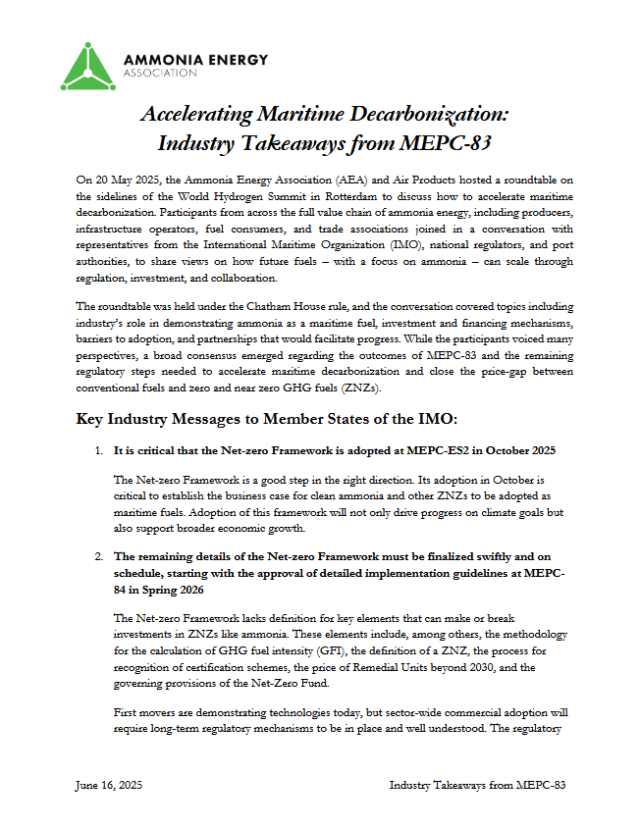Interim guidelines finalized for the use of ammonia cargo as fuel
The first-ever guidelines for use of anhydrous ammonia cargo as fuel on gas carriers have been finalized by the IMO’s Sub-Committee on Carriage of Cargoes and Containers. The guidelines will add supplementary text to the existing IGC Code, adding in specific design and operational requirements for ammonia-fueled vessels.









